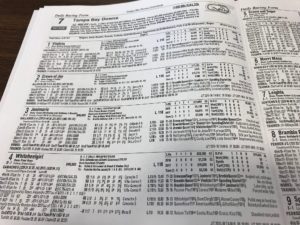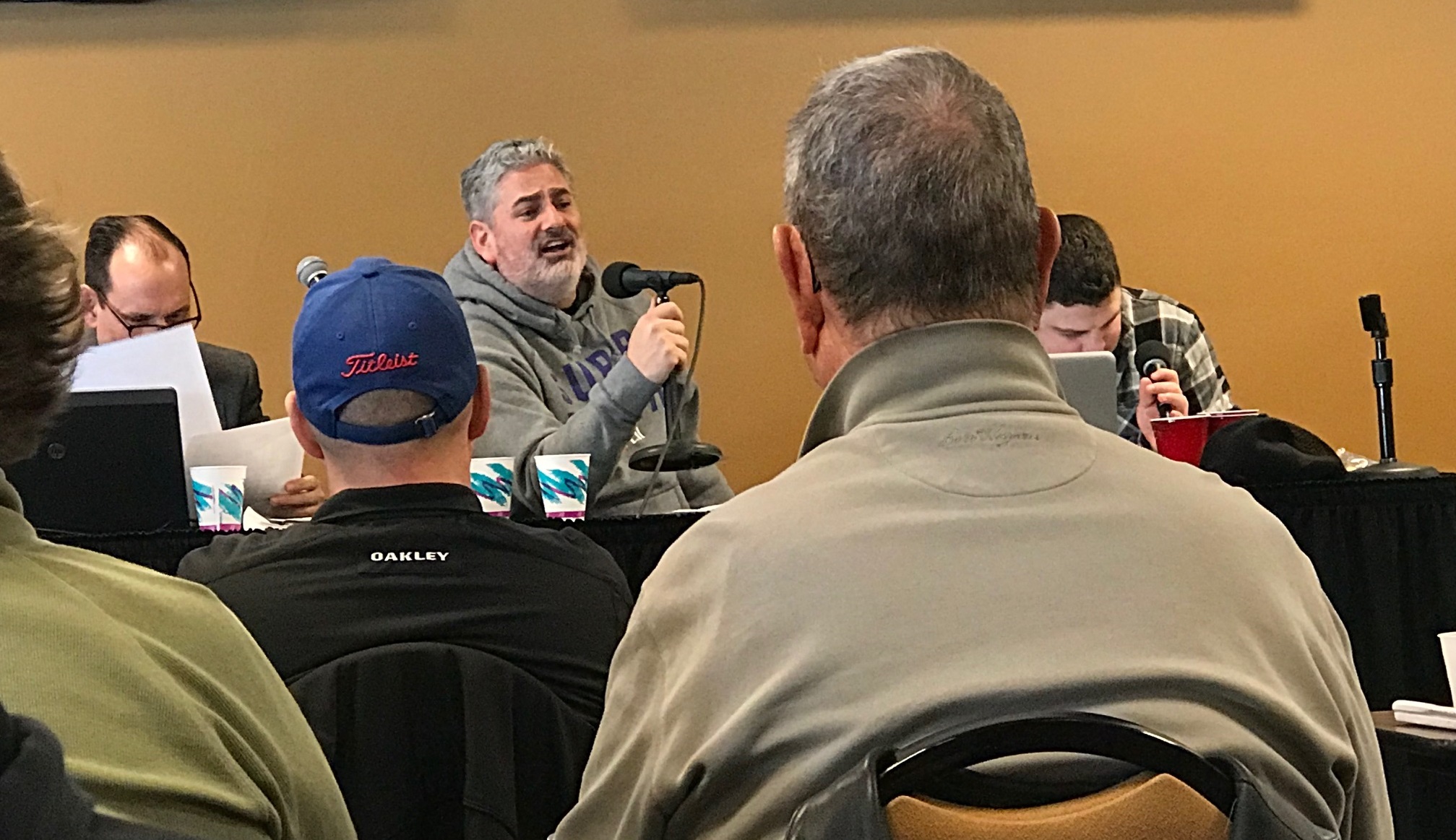 After our first week at Canterbury College, I was so excited to utilize my newfound ability to read a racing form and put it into action.
After our first week at Canterbury College, I was so excited to utilize my newfound ability to read a racing form and put it into action.
Easier said than done. We have a ways to go, my friend.
I’m Kris Janisch, a member of the marketing team here at Canterbury Park. While I always enjoy my time at the track, I’m a bit lost when it comes to handicapping. So I enrolled in Canterbury College, a free five-week course that teaches people the fundamentals of horse racing.
This week, we once again watched simulcast races from elsewhere in the country. Our third and final race was a blast!
Find my Week 1 blog post here, Canterbury College: Perspective from a Rookie Handicapper.
Note: Registration for the current series of Canterbury College is closed. However, Canterbury Park will offer one-day classes for a small fee, which includes race day admission, once the live racing season begins. Details to come.
Getting Started
On Sunday, Feb. 25, Week 2 kicked off with a review on how to read past performances of horses and other information provided in racing forms.
We will continually go over this data, said track announcer Paul Allen, one of the three Canterbury College professors we are learning from, along with Brian Arrigoni, paddock analyst at Canterbury Park, and Jeff Maday, Canterbury Park handicapping expert.
Staying on top of our ability to read a racing form is like math class, Allen said. If you get behind “you’re going to be lost every step of the way. It’s important.”
Deeper Dive
But just because I have a rudimentary understanding of the information in a racing form doesn’t mean I know what to do with it.

We took a deeper dive this week, with Arrigoni walking us through the differences in surface conditions at tracks, how to evaluate winning percentages of jockeys and trainers, and how claiming history may provide insight into a horse’s talent level.
A big point of emphasis for the first simulcast race we watched, at Fair Grounds, was the importance of “class,” which is the level of competition a horse generally faces. If a horse once raced in $25,000 claiming races but will now be in an $8,000 claiming race is part of the puzzle a handicapper is trying to piece together.
And even if a horse looks like an obvious favorite, it may be “the one to beat, not the one to bet” because of the low payout due to the odds, Arrigoni said.
Once the race was over, Allen stressed going back through our racing form to see what we may have missed and being honest with our own evaluation of what we thought would happen.
One note about claiming races at lower amounts: the horses are less consistent on a race-to-race basis, Arrigoni said.
The top horses in the biggest races are much more “formful,” meaning they will perform closer to what their past performances would indicate. And in a maiden race, which includes only horses that have never won, you get a much better opportunity to see a longshot win.
What Does It All Mean?
The second live race we watched was at Tampa Bay Downs.
Allen talked about:
- A jockey that moved from one horse to another.
- The running style of each horse applied over the distance.
- Which horses were moving up or down in class.
- Why an owner/trainer has two horses going in the same race.
- Why a horse followed up a strong performance with a poor one.
While much of the information is simply raw numbers, a couple of the items he mentioned were unknown.
“Here’s the guessing game with handicapping,” Allen said.
Picking Winners
The most exciting portion of Week 2 at Canterbury College was the third race we watched, also at Tampa Bay Downs.
Three of the horses in the race had previously run against each other. Our professors showed us a replay of that race to give us a glimpse of what happened and what takeaways we might glean for the upcoming matchup.
Arrigoni noticed that the horse he liked in our simulcast race had to pull up a bit at one point and lost momentum in the previous race.

“You can’t find that trouble in the racing form,” Allen noted.
Once we watched the replay, it was time for the race itself. Allen put Maday and Arrigoni on the spot and asked which horses they liked.
Their horses finished 1-2, with Maday’s coming out the victor. Allen lauded his handicapping skills.
“When he says something, you flock to the (betting) windows,” Allen said. “That was a perfect way to end today’s Canterbury College.”
